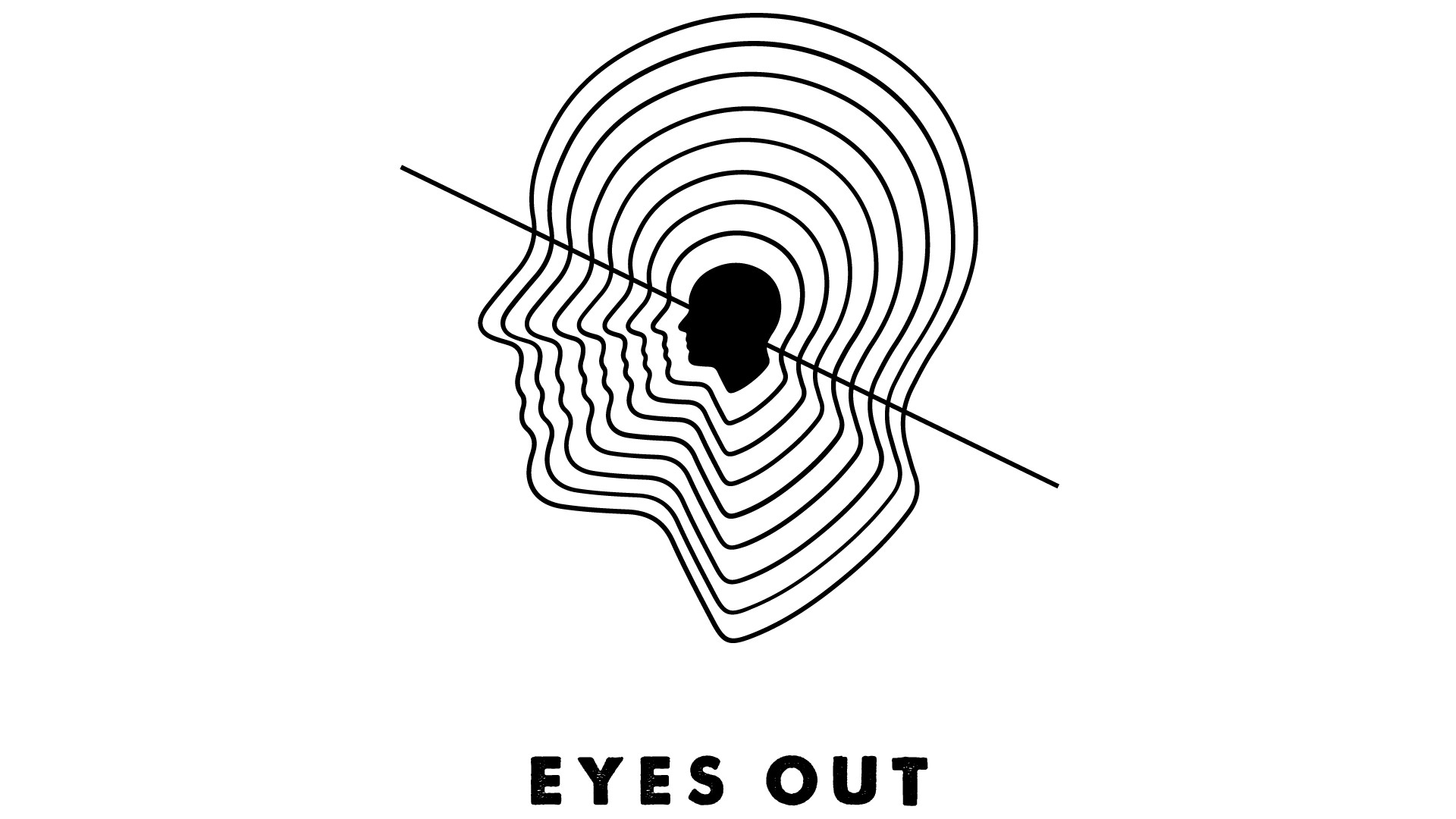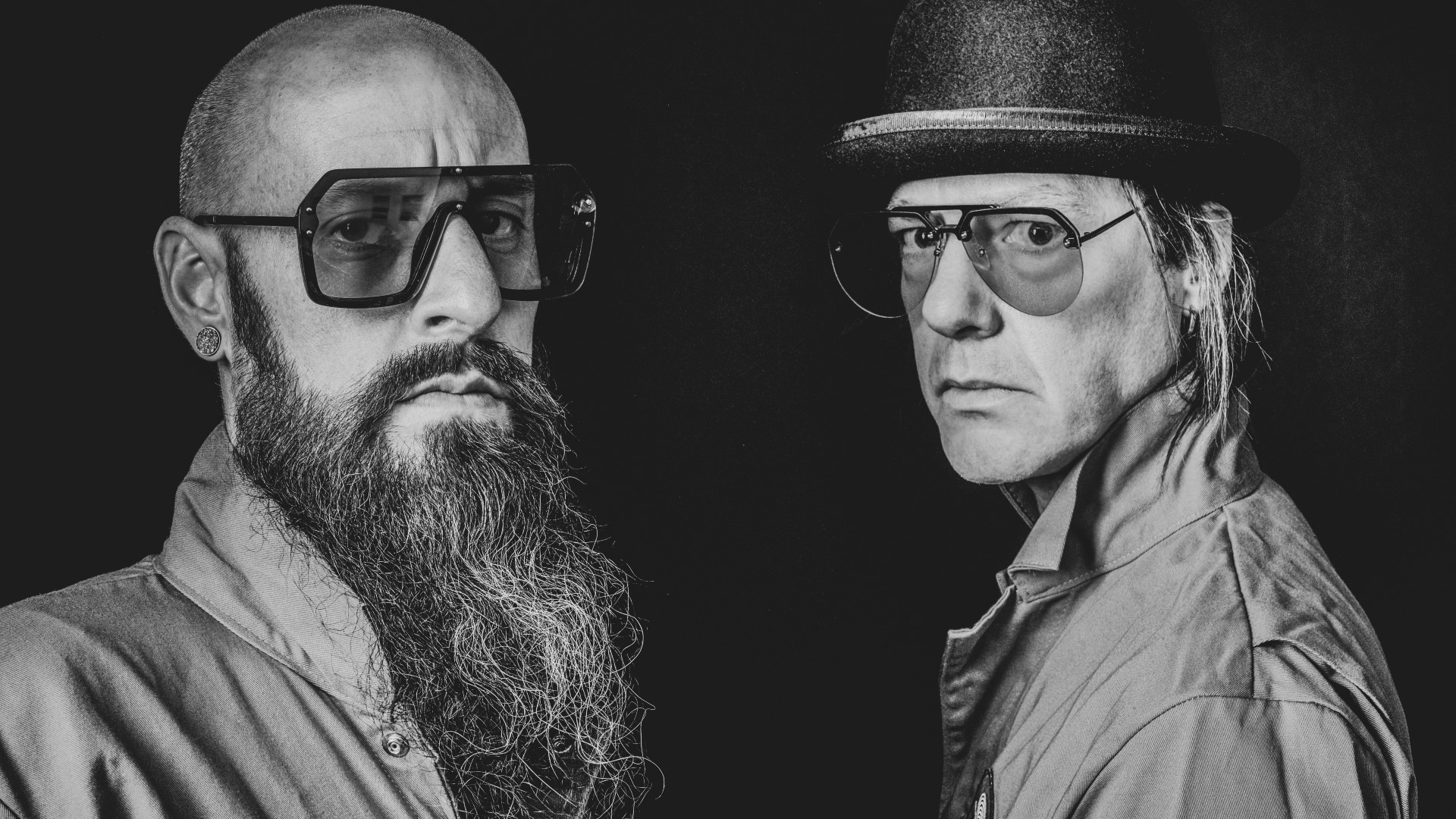Why Spec Ops: The Line's creative director and a Nine Inch Nails guitarist are opening their own game studio
Cory Davis and Robin Finck on the foundation of Eyes Out and their ambition to build a new generation of cosmic horror games

Cory Davis and Robin Finck, respectively the former creative director on Spec Ops: The Line and guitarist for Nine Inch Nails, have founded a new game studio called Eyes Out. Based in Los Angeles, California, Eyes Out is currently working on its debut game, "a single-player immersive cosmic horror game with strong environmental storytelling elements." The studio is still fairly young and actively hiring for several roles, as its newly minted website shows.
Eyes Out is the latest in a string of eyebrow-raising studios brandishing big names: several PlayStation leads announced That's No Moon last month, and former Mass Effect director Casey Hudson revealed Humanoid Studios in June.
Davis has years of development experience well beyond Spec Ops: The Line, and Finck has worked with video game music before – the score for indie game Noct counts him among its contributors – but Eyes Out still comes as quite the surprise. It sounds like the setup for a punchline: a Rock and Roll Hall of Fame guitarist and the lead on an iconic, deconstructive military FPS walk into a studio... So, we spoke to Davis and Finck to get a better idea of how the two co-founders came together and what Eyes Out hopes to create.
"I was introduced to Cory by a sound designer called Brain DiDomenico, whom I’d met at gameSOUNDcon in 2017," Finck tells GamesRadar. "Brian was one of a hundred people I’d enjoyed meeting there and he was working at Sony Santa Monica at the time, which is where Cory and his team were finishing Here They Lie. I was invited to come test the game on the new PSVR Headset and I went and did that. Cory and I touched antennas and actually stayed in contact. Sort of unheard of, far as I’m aware. We connected about films and games and music and all the minutia – it was a really positive charge colliding with him."
After his last Nine Inch Nails show on December 15, 2018, Finck says he was at Davis' house "the very next day" roughing out what would eventually become Eyes Out. "We began with a discussion of life and death," he says. "The seen and unseen. We're talking about it still."
"As Eyes Out has grown, it's evolved into such an oddly talented, powerful group of creators," Davis adds. "The universe that we are breathing life into has become a tangible place in our hearts that we can go back to again and again. We’re still growing and can’t wait to show you what we’re building together."
A descent into horror

"The horror beyond the veil continues to draw me in"
Cory Davis
Eyes Out, a self-described arthouse studio, is starting with a horror game. Davis has plenty of horror experience between his work on Condemned and F.E.A.R., and Finck's professional introduction to games was through horror. But the two explained that their interest in the genre goes much deeper.
Weekly digests, tales from the communities you love, and more
"There is something about the suspension of disbelief within the horror genre that is seductive to me," Finck enthuses. He highlights games like Antichamber, What Remains of Edith Finch, Limbo, Inside, and the works of Remedy and Bloober Team as standouts in the gaming "crash-course" he undertook to catch up on the medium. "I just like to go there. It provokes an emotional and psychological response, usually around a fear of the unknown. It’s a dynamic space where we are at times confronted with preconceptions or just ideas or beliefs we would otherwise ignore. It’s a vast, deep dark whose tendrils spiral, feeling for the light."
"I’ve been obsessed with horror since I was a kid," Davis says. "I really love horror that questions reality, and the purpose behind our existence. Offering an honest glance into the unknowable void surrounding all that we perceive. I see infinite potential and power in horror to not only terrify, but also to open up conversations and questions about the way we live, why we make certain choices in our lives, and the consequences of those things. The horror beyond the veil continues to draw me in."
The first game from Eyes Out won't just be any horror game, either, but specifically a work of cosmic horror. To me, this subgenre implies some unknowable threat, not unlike the Eldritch watchers of the fresh PS5 exclusive Returnal. To Finck, it's about "incomprehensible forces that tune our perception of reality. It’s an unreliable and forbidden knowledge and so lies akin to madness. It’s really a contemplation on some unfathomable existence of humanity. Something we cannot know or experience; this calls my name, always."
A new generation of hardware and music

"There is an inherent understanding that the player seeks to imbibe fully in what is presented to them"
Robin Finck
The studio has also formally opened its doors just as the dust is beginning to settle on a new console generation. Davis reckons the PS5 and Xbox Series X will unlock "many new opportunities for powerful immersion and storytelling" going forward.
"Some of the things we’re most excited about include new possibilities with audio and music being directly connected to gameplay, the ability to create more believable worlds and characters visually, as well as an array of aggressive, otherworldly, world-warping experiences," Davis says. Ratchet and Clank: Rift Apart is perhaps the best example yet of how new-gen load times can empower games to dynamically transform scenes and spaces, and the prospect of a similar technique being applied to cosmic horror is tantalizing.
Obviously, Finck is keen on the musical side of game development. "The audience is captivated. The audience is participating. There is an inherent understanding that the player seeks to imbibe fully in what is presented to them," he says of video game soundtracks. "The immersive quality of adhering music with story and environment, that depth of experience, with the added component of player agency, offers a heightened state of awareness. The audience is open. The audience is listening."
"There are so many issues that are unique to composing for games, not the least of them is the issue of non-linear probability," he continues. "Another is duration. These two issues alone can either be problematic or can be inspirational to the process of creation. Pacing a level can be a challenge as there are innumerable types of players. Some want to stay back and touch every surface for an hour, some just want to advance and blow through without exploring all that was laid there to discover. Neither is wrong. The game audio needs to support a variety of outcomes and to function in any scenario, providing the depth of character or build-up of dread, or culminating in some sort of release."
"The implementation of music, as it plays out relative to other audio designs, is an iterative process of trial and error, of building and tearing down. It feels incredible when it all finally lands and starts to feel like important moments are consistently met. It’s a nuanced affair."
It will be a while yet before we learn what exactly Eyes Out has in production, but given its pedigree and ambitions, it's sure to be something to see – and likely filled with things better off unseen.
Looking for something scary to play while Eyes Out builds its debut game? Then maybe you should check out our list of the best horror games.

Austin has been a game journalist for 12 years, having freelanced for the likes of PC Gamer, Eurogamer, IGN, Sports Illustrated, and more while finishing his journalism degree. He's been with GamesRadar+ since 2019. They've yet to realize his position is a cover for his career-spanning Destiny column, and he's kept the ruse going with a lot of news and the occasional feature, all while playing as many roguelikes as possible.


